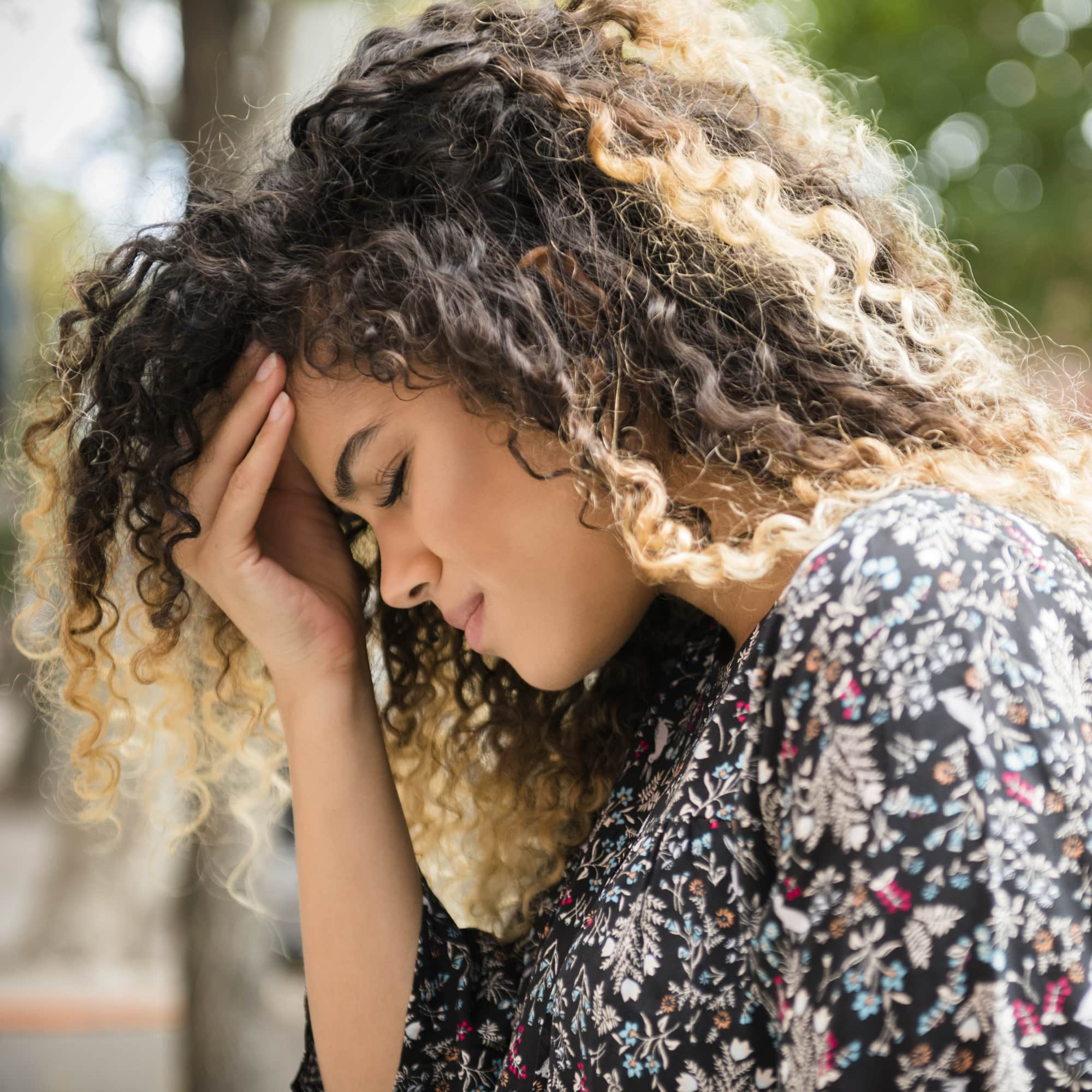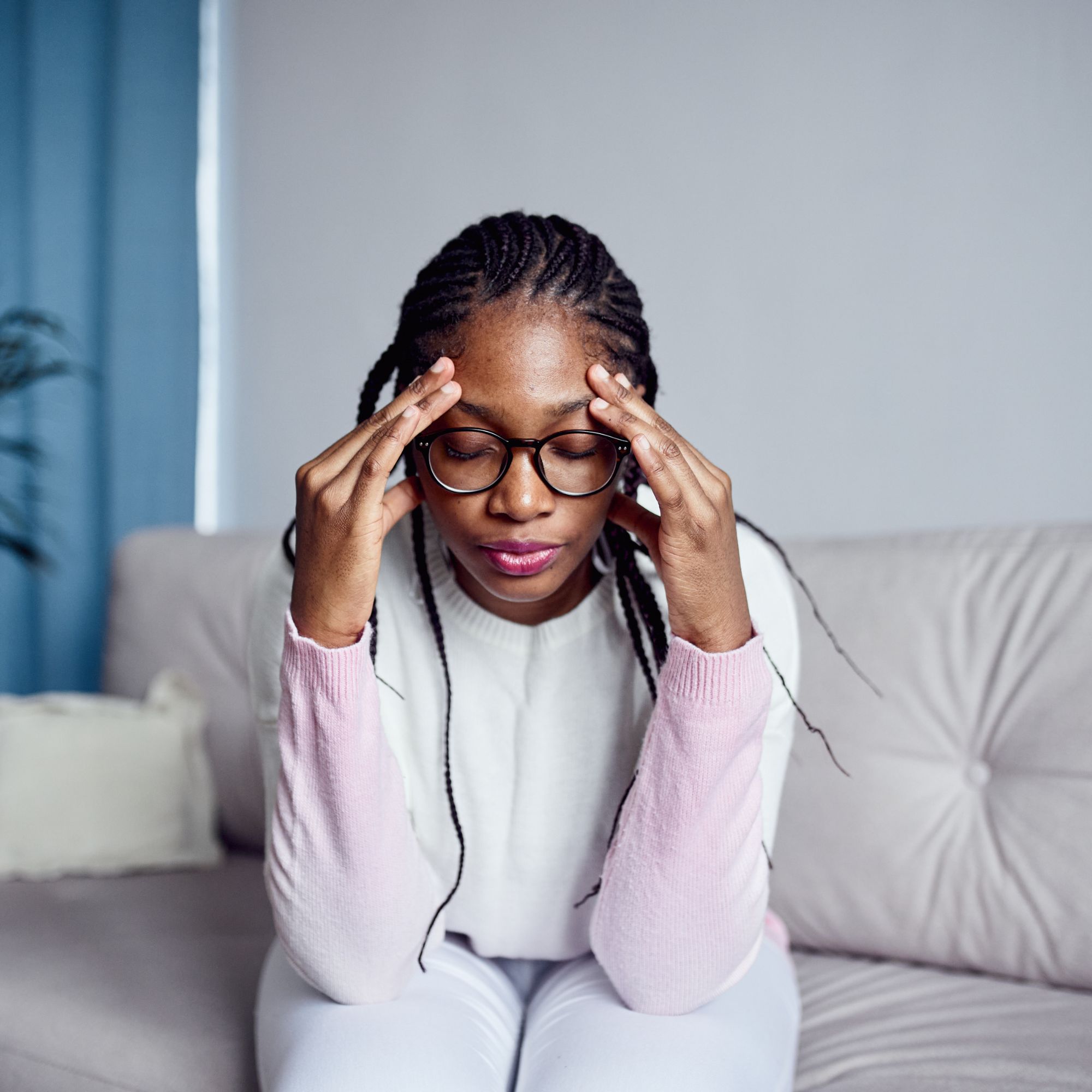
- POPSUGAR Australia
- Beauty
- Doctors Explain How to Knock Out a Migraine Fast
Doctors Explain How to Knock Out a Migraine Fast

Approximately 35 million Americans experience migraines, but despite their prevalence, the exact cause of migraines remains unclear – and for those who experience them, relief can be just as elusive. Migraines, after all, are no ordinary headache. In fact, though the terms “headache” and “migraine” are often used interchangeably, they aren’t synonymous.
“Migraine is a specific neurological disease of which headache is a symptom,” Huma Sheikh, MD, a board-certified neurologist who specializes in migraine and complex headaches, tells POPSUGAR. Dr. Sheikh explains that a migraine headache is extremely painful and typically the most disruptive symptom of the disease, but it’s one of many symptoms. Other hallmarks of migraine include neurological symptoms such as numbness or tingling on one side of the body; visual disturbances; nausea; sensitivity to light and sound; and trouble thinking.
Because migraine headaches can be so debilitating, people who experience them more frequently are often prescribed medications or other treatments to help prevent migraines or manage the symptoms. But what if you aren’t being treated by a doctor and need to find relief fast? Fortunately, experts say there are ways to ease the pain on your own.
How to Treat a Migraine at Home
“The quickest way to treat a migraine is to take a medication at the first sign of migraine symptoms,” Paul Mathew, MD, DNBPAS, FAAN, FAHS, assistant professor of neurology at Harvard Medical School and a member of the National Headache Foundation, tells POPSUGAR. Dr. Mathew notes that prescription medications that are specific to migraines tend to be far more effective than over-the-counter options – but either way, it’s crucial to take the medication as quickly as possible.
“Many people make the mistake of waiting to see if the migraine will go away, and this delay in taking medication can result in the medication being less effective,” Dr. Mathew says. He adds that taking the medicine at the first sign of a migraine symptom can result in a mild to moderate headache that lasts for one to two hours, while waiting too long often means a moderate to severe headache that can last a day or longer.
Experts typically recommend taking a non-steroidal anti-inflammatory drug (NSAID), such as ibuprofen or naproxen, for migraine headaches. Other over-the-counter remedies, such as Excedrin Migraine, combine an NSAID with acetaminophen and caffeine, which you may find to be effective.
In addition to taking medication, Dr. Mathew recommends avoiding bright lights, noises, and certain smells, which can exacerbate migraine symptoms. Applying cold or heat to your head and neck can also be helpful, but Dr. Mathew says this varies from person to person. Try laying in a dark room with an ice pack or heating pad, and know it may take some trial and error to figure out which strategy works best for you. If you can manage to fall asleep, rest may be the best treatment for a persistent headache, according to Dr. Mathew.
When to See a Doctor For Migraines
If migraines have become an all-too-common occurrence and are interfering with your daily life, it’s important to seek help. In order to prevent headaches, you may need to address some of the more common culprits that can trigger migraine attacks.
“Migraine is genetic in basis but environmental factors act as triggers and can bring on individual attacks,” Dr. Sheikh says. “Stress and sleep issues are the two biggest triggers.” Dr. Sheikh explains that sleep issues, such as insomnia or sleep apnea, should be discussed with your doctor. When it comes to stress, she recommends meditation, yoga, and physical activity, which can help decrease the stress hormone cortisol.
Dr. Mathew adds that other preventative treatments can include supplements, daily oral medications, injectable treatments such as botox, and monthly antibody injections. “People with migraine should speak to their physician about treatment options and lifestyle change,” he says.
Read More POPSUGAR Fitness
- Your Question, Answered: Why Do I Bloat After Having Sex?
- Why Do I Get a Racing Heart When I Drink Alcohol? Here’s What It Could Mean
- 25 Instagram Captions That Are Perfect For Those Sweaty Gym Selfies
- Emilia Clarke on Surviving 2 Brain Aneurysms: “It’s Remarkable That I’m Able to Speak”
- Ozempic Is Touted on TikTok as a Weight-Loss Miracle. The Reality Is Not So Simple


